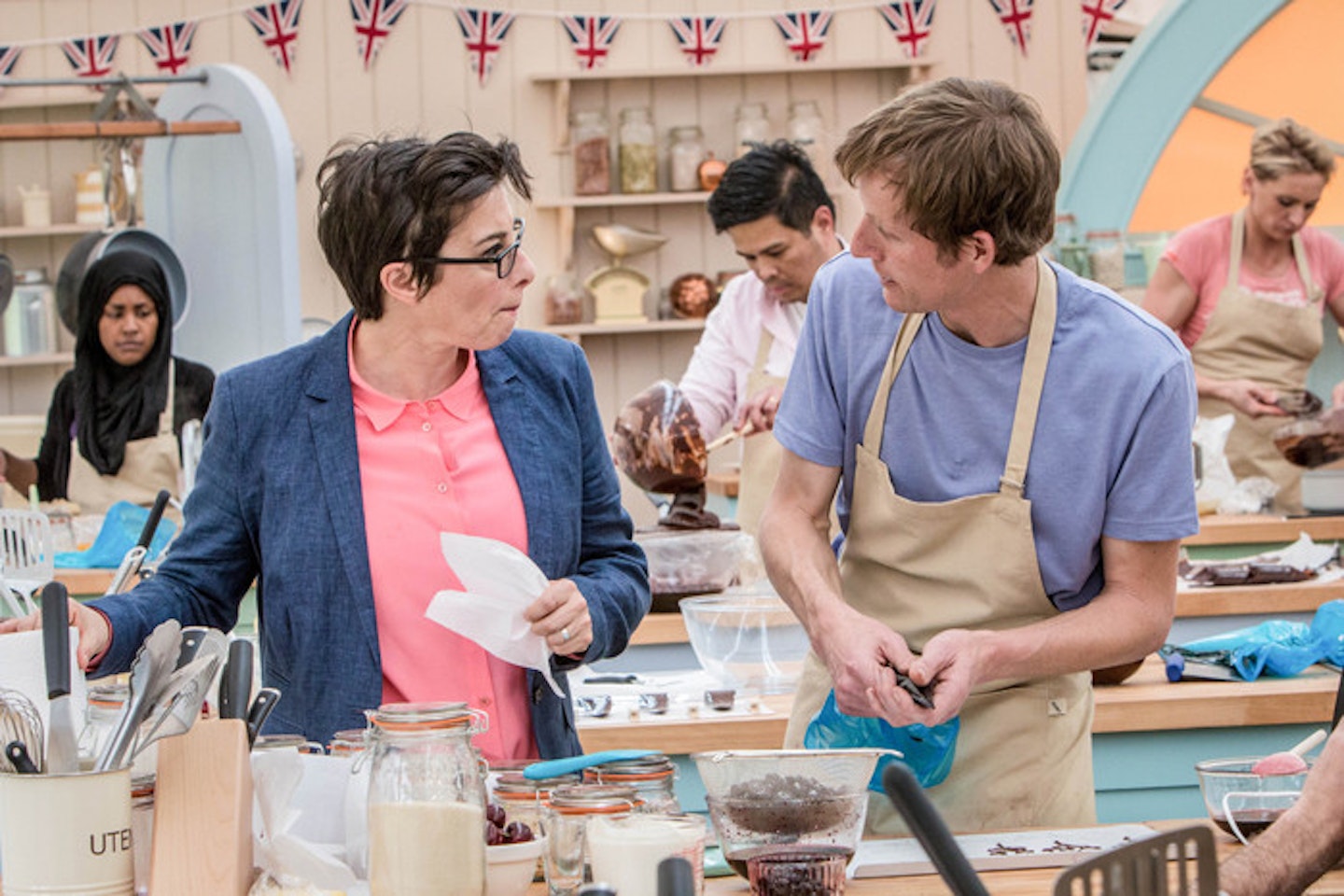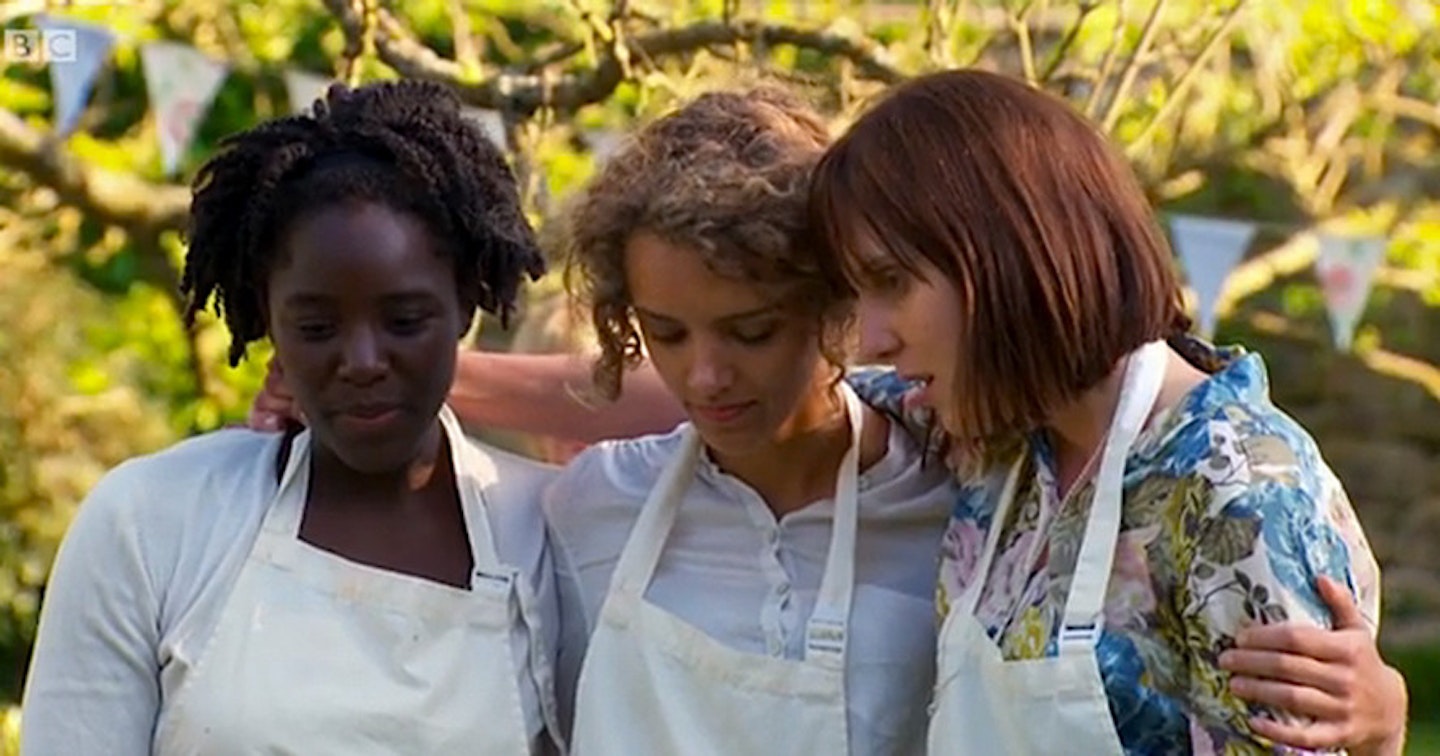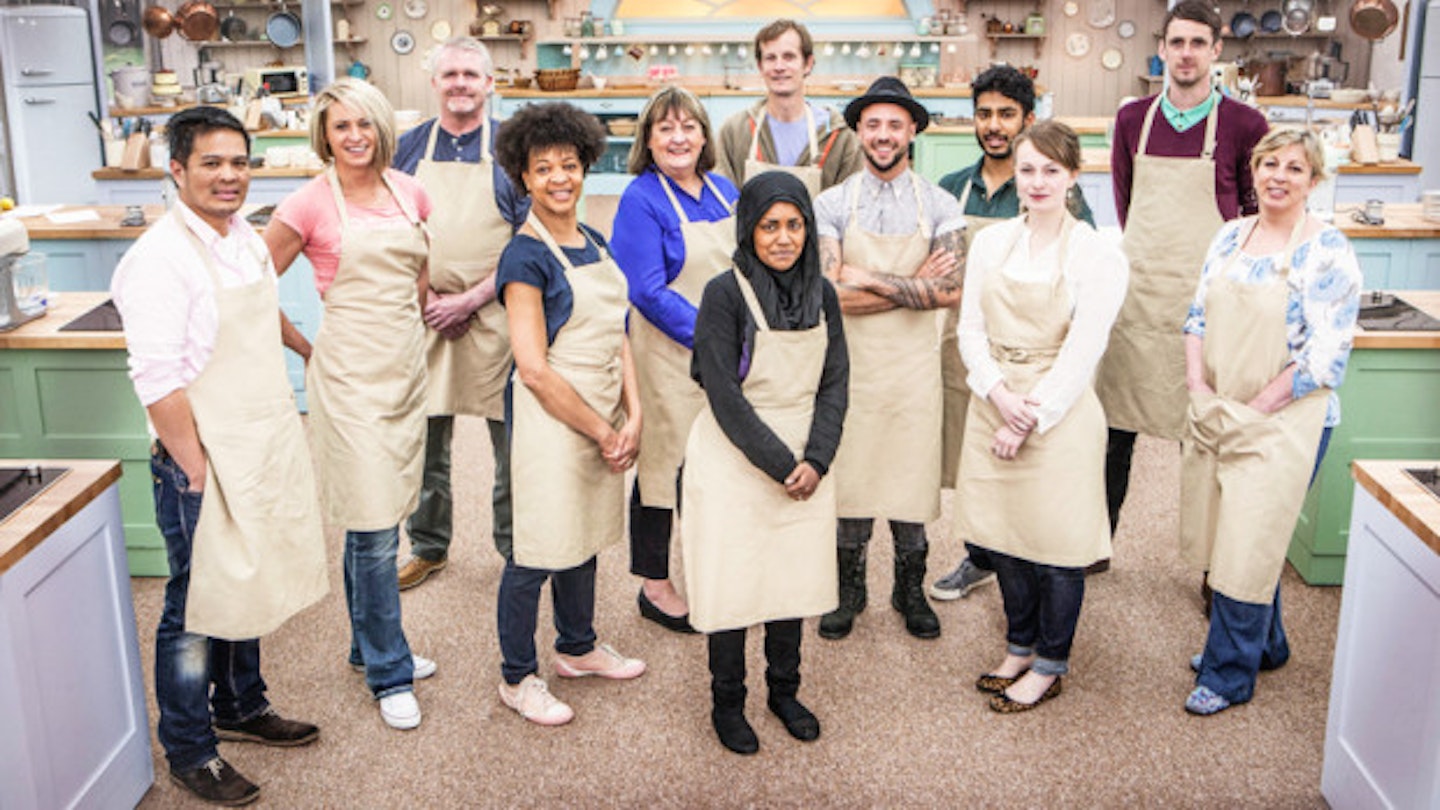Is there anything more quintessentially British than the way the *Great British Bake Off *suckers everyone in? For 10 weeks a year, a significant chunk of my (liberal, usually queer, often not-white) friends are pulled into a world of Union Jack bunting and terrible puns.
Is it the cake? Mary Berry? The person we all decide to fancy every year (hey, Tamal)? All I know is, I keep on watching, ignoring the fact the Bake Off tent is more twee and middle England than I could ever try (or want) to be.

This year, my love for Bake Off reached dizzying new heights when I looked at the line up. Four people of colour (POC) on the same show? Including a womanin a hijab? Plus, a Lithuanian immigrant? There was even a white guy who kept on going about the Caribbean!
I claimed them all, unashamedly supporting them in advance because they’re various shades of brown. Some people out there might suggest this support is bigoted, but the truth of it is: it’s nice to see people who look like me and my friends on the telly. Yeah. It’s nice. Whenever I see that people of colour don’t exist in Chelsea, Essex or the fictional East End, I feel invisible – and I’m not the only one.
An Ofcom review found that both disabled people and people of colour often felt ‘under-represented or unfairly portrayed’, something I could have told them without a massive survey. We’re so starved of representation that I have to look to social media to see people like me speak out about anything.
And I’ve seen dozens of statuses and tweets this week about how excited people were about this year’s Bake Off.

When you only see people who look like you on the news as victims, stereotypes, or both, the mundanity of cake is almost a relief. Bake Off Season 4 finalist Ruby Tandoh agrees, telling The Debrief: ‘I think what I really like about letting the show be a celebration of POC is that it’s so refreshing to see people I identify with actually occupying a domestic setting.’
She added: ‘The whole premise of the show is pretty middle class and willfully blind to the real world outside, but for me that makes it all the more unusual to see POC and working class/queer people allowed to coexist with the usual white hetero culprits in that arena. It’s more than just plain visibility somehow.’
The Daily Mail, obviously, didn’t feel the same. Top-rated comments ranged from ‘they forgot to include someone in a wheelchair’ (yeah actually, they did) to the infuriating ‘if you’re white, middle class… you’re of no interest to the BBC’. No interest? Of the 12 contestants, eight are white people. Two thirds! Yet it’s not enough for some people.
This sentiment isn’t just felt by the sorts of people who live to see their comments up-voted on the *MailOnline’*s comment pages. Actual journalists – who shape the way other people think – echo these ideas. Jan Moir bleated about ‘carefully curated fashionable minorities’, while Quentin Letts asked ‘were these new contestants chosen on merit?’
The short story: yes. This preoccupation with ‘unworthy tokens’ is about much more than cakes. It’s half racism, half entitled arrogance. Why else do they think white people automatically always rise to the top, like bubbles in a Victoria Sponge? Black and brown contestants aren’t always the first to go (remember that final with Kimberly and Ruby?), and besides, some white guy made a cake of beetroot and cream last night. Therefore, they are good enough to be there.
As series after series and the fact that food’s a pretty accessible topic both show, there are hundreds of great amateur bakers in the UK, so choosing a mixed bunch isn’t some great slight to the white middle class.

There’s an argument, though, that TV should be ‘proportional’, and that the Bake Off isn’t. The idea is that, if 87% of the UK is white British, the BBC must cull the POC on this year’s show by half, apparently.
Here’s the thing: representation on TV shouldn’t be ‘proportional’ if it wants to represent people. Yes, 7% of people in the UK are Asian, 3% are black, and 2% are mixed race. But we should strive for every show to represent them all. People of every ethnicity on every show on TV should be the norm.
While the majority of people in the UK are white, not being the overwhelming majority on TV doesn’t make them any less represented – look at the top ranks of the UK’s boardrooms, schools, politics, police, newspapers, magazines; basically, anywhere where important or influential decisions are made – and you’ll find a sea of white people.
White people could be advised to feel a little less insecure about their placement. Because you’ve seen yourself on telly. A lot. But never seeing yourself on telly – reality or not – is erasing, limiting, and a constant reminder that no matter what your passport says, there’s a creeping feeling you’re not supposed to belong.
And it’s even more important that POC are given more of a platform when you realise how often their stories are taken away from them. Journalist and filmmaker Kieran Yates told The Debrief: ‘Being represented shows us that we exist, and our experiences are worth showcasing.’
And she’s had difficulties doing this. Over the past few months, she has found herself battling Channel 4 and The Guardian over their roles in pushing her out of the new version of her original documentary, Muslim Drag Queens. The thing is, not only are people of colour not allowed to step into ‘white spaces’, we’re not allowed to create our own.
Kieran says: ‘We are here and to erase our stories from TV sends a message to young kids from immigrant communities that our experiences aren’t legitimate enough to make it to prime-time.’
So this year, I’m still rooting for cake-dropping Dorret, caramel-hating Alvin, Nadiya (my favourite) or Tamal (seriously, call me) to do as well as possible. I want their baking to prove they deserve to be there as much as anyone else. I want them to show that people of colour mess up and get competitive and feel overly emotional about biscuits like a lot of other people who live in Britain.
Most of all, I want them to be on my TV screen for as long as they can. Black and brown faces are hard to come by, so I want to see these ones until the bitter, buttery end.
Like this? You might also be interested in:
Unhappy With The Election Results? Leaving The Country Isn’t The Answer
Follow Sophie on Twitter @sophwilkinson
This article originally appeared on The Debrief.
